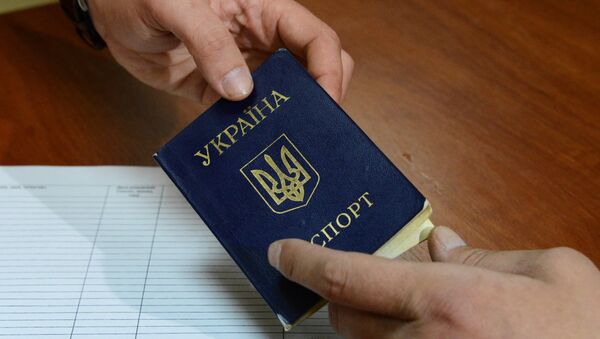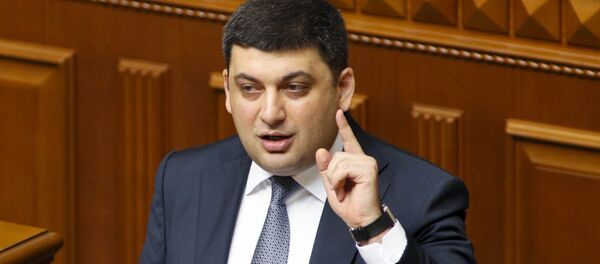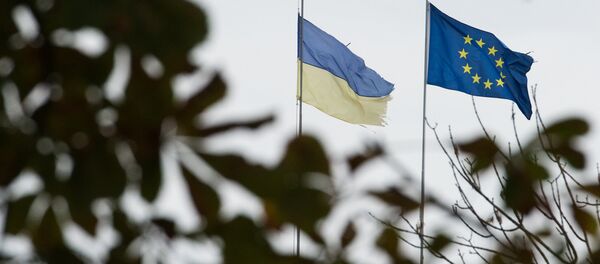The Committee voted in favor of visa liberalization on September 26, which observant political scientists pointed out was President Petro Poroshenko's birthday.
Speaking to Radio Sputnik, political scientist Nikolai Starikov said that to him the measure looks like a poorly disguised effort to continue to feed Kiev's European aspirations, even after senior European officials have admitted that Ukraine will not be considered for EU membership for decades.
Even the issue of visas, which Kiev expected to resolve quickly, has dragged on for years, the expert added. "The promise of visa-free travel is like a carrot for a horse. The horse must be shown, or even better, be allowed to smell the carrot, for it to go in the 'right direction'. And since talk of a visa-free regime has been going on for years already, the carrot has now been brought in close, so that the horse could see it."
Prior to Monday's announcement, EU officials of various ranks continuously put off promises to liberalize visa requirements, citing the lack of progress in the battle with corruption, the fear of organized crime, and the implications of the ongoing civil war in eastern Ukraine.
According to Starikov, even if EU officials do decide to go ahead and lift travel restrictions, such a concession would do little good for Ukrainians in and of itself. Amid economic decline and IMF-mandated austerity reforms, most of the country's citizens are now struggling to pay for food and utilities, much less thinking of a beautiful life spent traveling across Europe.
With many Ukrainians expected to enter the Eastern European countries including the Czech Republic and Poland in search of illegal work, local officials and political analysts have voiced concerns that lifting visa restrictions would threaten to decimate local job markets and create to ethnic animosities.
In any case, Starikov suggested that in its present form, "this visa-free regime is just useless confetti. I assure you that if it does pass, Ukrainians will only be further disappointed in the future."
Ultimately, Starikov suggested that the European Parliament's Committee on Home Affairs' decision, made on the president's birthday, was meant as "a small gift to sweeten his very unhappy presidency," and to ensure Kiev's continued loyalty to Western countries.
Washington and Brussels, in his view, would like to see to it that "Ukraine destroy itself, constantly provoking Moscow, and becoming a sort of 'bleeding wound' on Russia's border, with the potential to escalate to full-scale war. It's for this reason that it's necessary to dangle a carrot in front of Ukraine – so that its leaders continue to move it in a suicidal direction."




